IFRA Nigeria/IAS lecture: "Global science - local technology: Archaeology of glass production in Ile-Ife, Nigeria (ca. 1000 – 1500 AD)" - Dr. Abidemi Babatunde Babalola
On Thursday 26th January, IFRA Nigeria was very pleased to organise jointly with the Institute of African Studies of the University of Ibadan a public lecture entitled "Global science - local technology: Archaeology of glass production in Ile-Ife, Nigeria (ca. 1000 – 1500 AD)" given by Dr. Abidemi Babatunde Babalola, from Harvard University (USA).
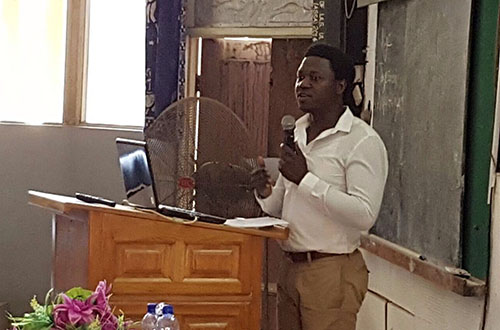 Dr. Abidemi Babatunde Babalola is the McMillan-Stewart Fellow at the W.E.B Du Bois Institute, Hutchins Center for African & African American Research, Harvard University. He received his B.A and M.A from the department of Archaeology and Anthropology, University of Ibadan Nigeria, and a PhD in Anthropology from Rice University Houston, Texas with specialization in African Archaeology.
Dr. Abidemi Babatunde Babalola is the McMillan-Stewart Fellow at the W.E.B Du Bois Institute, Hutchins Center for African & African American Research, Harvard University. He received his B.A and M.A from the department of Archaeology and Anthropology, University of Ibadan Nigeria, and a PhD in Anthropology from Rice University Houston, Texas with specialization in African Archaeology.
Dr. Babalola has conducted archaeological investigations in Nigeria, Tanzania, and the United States. He has also worked with several Cultural Resource Management companies in the United States. His works have appeared or forthcoming in leading peer-reviewed journals such as Antiquity, Journal of African Archaeology, Journal of Archaeological science, and Journal of black studies. He is currently completing a book entitled Craft production in an early West Africa Society: Archaeological and historical perspectives on glass making/working in Ile-Ife Nigeria, 1000-1500AD.
Dr. Babalola’s areas of interests include early technologies and technological change, urbanism, African Arts, Atlantic Africa, African and African Diaspora studies, and cultural heritage.
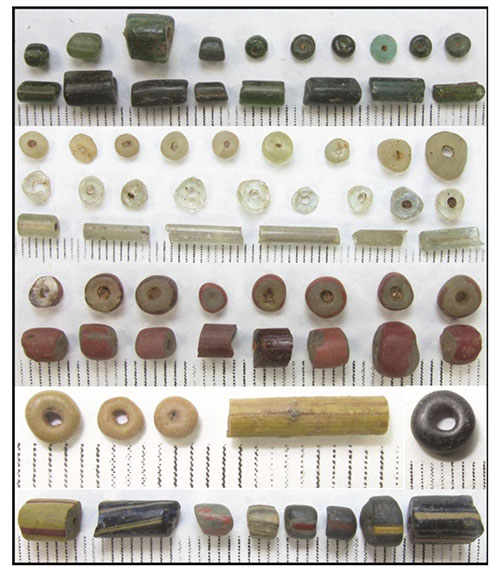 Dr. Babalola exposed to a very attentive audience how glass is one of the most fascinating material cultures invented in antiquity. Although its development, spread, and technology have received some attention, the focus has been on the ancient Egypt, the Middle East, Mediterranean, Roman, and South and Southeast Asia. Thus, Africa – South of the Sahara, is often neglected in the discourse of technological development of glass. Rather the sub-continent is regarded as a ‘sole consumer’ of glass materials (e.g. bead).
Dr. Babalola exposed to a very attentive audience how glass is one of the most fascinating material cultures invented in antiquity. Although its development, spread, and technology have received some attention, the focus has been on the ancient Egypt, the Middle East, Mediterranean, Roman, and South and Southeast Asia. Thus, Africa – South of the Sahara, is often neglected in the discourse of technological development of glass. Rather the sub-continent is regarded as a ‘sole consumer’ of glass materials (e.g. bead).
Dr. Babalola’s presentation reported then on recent archaeological investigations of an ancient glass-making site at Igbo Olokun, Ile-Ife. His archaeological research recovered several materials related to early glass making/working in early Ile-Ife. The study reveals that the early inhabitant of Ile-Ife understood the global science of glass making and invented a local technology to produce a “uniquely Yoruba glass” of high lime, high alumina (HLHA) compositions as far back as eleventh century AD.
Dr Babalola examined the complete chain of production of glass beads at Igbo Olokun – a process that has never been since anywhere else in Sub-Saharan Africa. Finally, he argued that Ile-Ife actively engaged in early primary glass making, and supplied her product – mainly glass beads - across early West Africa societies from the 11th century or earlier through the 15th century
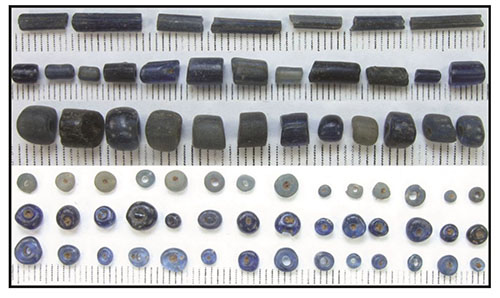
The lecture was then discussed by Kola Adekola, from the Department of Anthropology and Archeology, University of Ibadan.
It was finally followed by a really enthusiastic debate between Dr. Babalola and members of the audience, notably researchers from the Anthropology and Archeology Department, but also from the Ile-Ife Museum.
A cocktail in the entrance of the Institute of African Studies crowned this fascinating lecture, attended by numerous academics and students from the University of Ibadan.
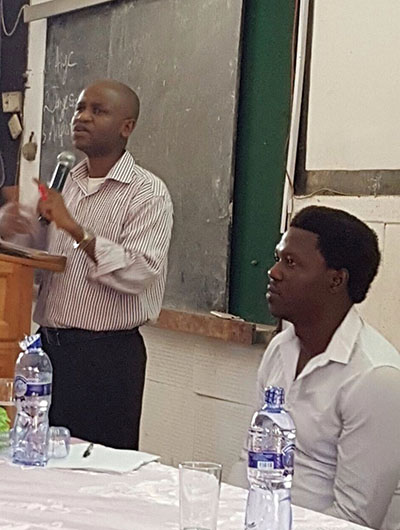
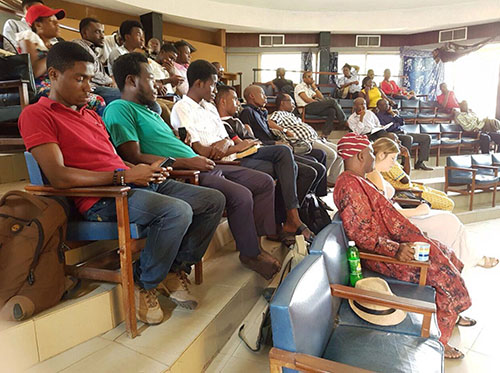

Social Media
Mailing List